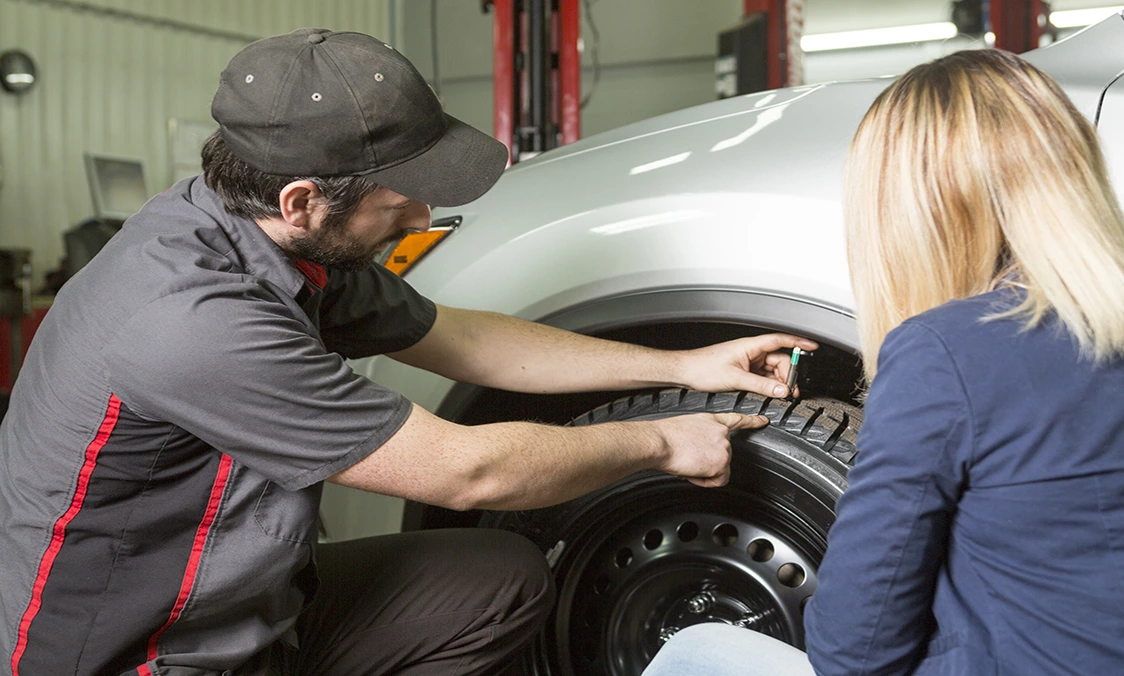PCV Valve: What Is It?
May 16, 2017
Most Royal Oak drivers know something about preventive maintenance on a vehicle. We know we should routinely replace the oil and wiper blades and other fluids. But have you heard of a PCV valve ? This little car part needs to be replaced regularly or it can cause some serious problems in your vehicle engine.
PCV stands for Positive Crankcase Ventilation. The crankcase holds your motor oil and is located at the bottom of your engine.
When fuel is burned in your engine, it produces waste gases that are mostly vented out through your exhaust system. But some of these gases push their way past the pistons and into the crankcase. There, these gases can mix with motor oil to produce oil sludge, which can damage vehicle engine parts through corrosion and by clogging engine passages. Royal Oak vehicle owners should be advised that if the engine is running at high speeds, these gases can also cause pressure inside the crankcase to build up. This pressure, in turn, can blow gaskets and damage seals, leading to oil leaks.
The waste gases that leave the engine are comprised of about 70% unburned fuel. They used to be vented off the crankcase into the atmosphere. But starting in 1964, laws mandated that these gases be recaptured. Manufacturers began installing PCV systems, which recycled the gases into the air intake system where they could be mixed with fuel and sent to the engine to be burned.
The PCV valve is a one-way valve attached to the crankcase. Waste gases exit the crankcase through the valve but cannot enter.
Over time, the waste gases leave deposits on the PCV valve that can gum it up. So it needs to be replaced occasionally. This is an inexpensive part of preventive maintenance that is often overlooked, but which can have very expensive consequences. It's good auto advice to keep this little valve clean and working well.
In order to maintain efficient circulation, the PCV system also has a breather tube that allows clean air to enter the crankcase. This air is usually filtered through the engine air filter. But some vehicles have a separate air filter for the breather tube called the breather element. If this is the case with your vehicle, proper maintenance of the PCV will include replacing this element. To find out whether your vehicle has this type of PCV system, check your owner's manual or ask your service advisor at TLC Custom Exhaust Brakes & Tires.
The PCV system reduces harmful vehicle emissions. The maintenance it requires is simple and inexpensive at TLC Custom Exhaust Brakes & Tires. A fouled or damaged PCV system can lead to serious engine damage for Royal Oak drivers.
Let's all learn to practice good car care. It's good for our wallets, and it's good for our Michigan environment.
TLC Custom Exhaust Brakes & Tires
1735 N Main St
Royal Oak, Michigan 48067
248-541-8300
http://www.tlcautocareroyaloak.com
Need Service?
More articles from TLC Auto Care

Light's Out! Trouble Ahead (Exterior Light Bulb Service)
May 25, 2025
Whether or not your exterior light bulbs are all working probably is not at the top of your list when you think about your vehicle. But those exterior lights are more important than you think, and they're vital to your safety and that of other drivers near you. Headlights are important. Not onl... More

Muffler: Victim of Winter (Muffler Repair)
May 18, 2025
So you almost got through the winter until, one day, your muffler started sounding like a dragster, loud and obnoxious. It's not surprising. All that road salt and brine can cause rust to punch holes in a muffler, and that should raise a big, red warning flag about the safety of your vehicle. O... More

A Bright Spark (Ignition Coil Replacement)
May 11, 2025
Ever wonder how your vehicles engine is able to take the 12-volts from its battery and ramp that up to as high as the tens of thousands of volts it takes to fire its spark plugs? The secret is something called an ignition coil. Most newer vehicles have an ignition coil at each cylinder, but olde... More










